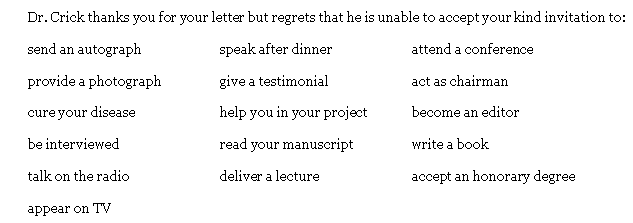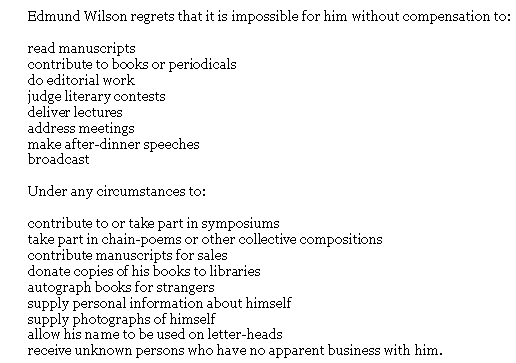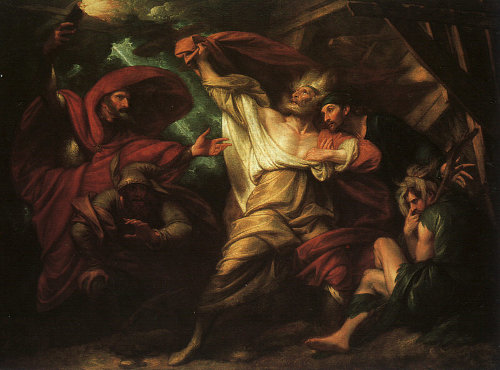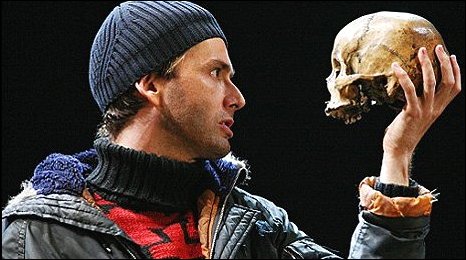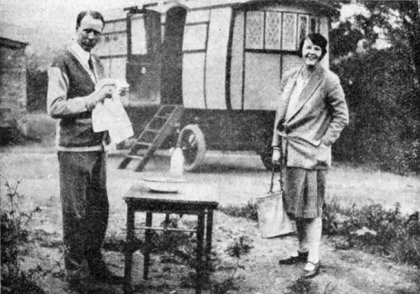By Franklin Pierce Adams, in Overset, 1922:
To
Herbert Bayard Swope
without whose friendly
aid and counsel every
line in this book was
written.
By E. Greenly, in The Earth, Its Nature and History, 1927:
To the memory of
my wife Annie
the last act of whose life was to
re-read critically the manuscript
of this book.
By Francis Hackett, in The Invisible Censor, 1921:
To
my wife
Signe Toksvig
whose lack of interest
in this book has been my
constant desperation.
By Benjamin Disraeli, in Vivian Grey, 1826:
To
The Best and Greatest of Men
I dedicate these volumes.
He for whom it was intended will accept and
appreciate the compliment;
Those for whom it was not intended will —
do the same.
By John Burroughs, in Bird and Bough, 1906:
To
the kinglet
that sang in my evergreens in October and
made me think it was May.
By Jerome K. Jerome, in Idle Thoughts of an Idle Fellow, 1886:
To the very dear and well beloved Friend of my prosperous and evil days. — To the friend, who, though in the early stages of our acquaintanceship, he did ofttimes disagree with me, has since come to be my very warmest comrade. To the friend who, however often I may put him out, never (now) upsets me in revenge. To the friend who, treated with marked coldness by all the female members of my household, and regarded with suspicion by my very dog, nevertheless, seems day by day to be more drawn by me, and in return, to more and more impregnate me with the odour of his friendship. To the friend who never tells me of my faults, never wants to borrow money, and never talks about himself. To the companion of my idle hours, the soother of my sorrows, the confidant of my joys and hopes, my oldest and strongest Pipe, this little volume is gratefully and affectionately dedicated.
